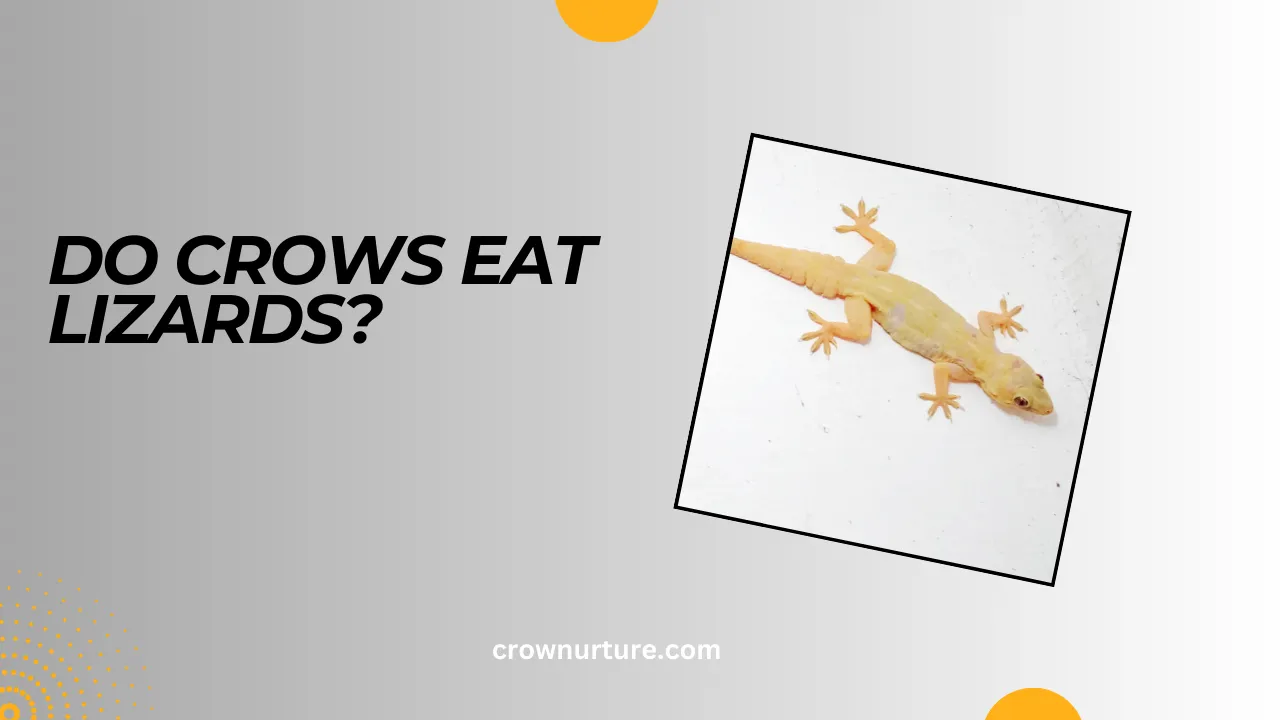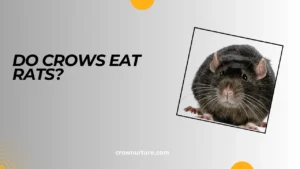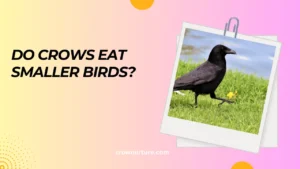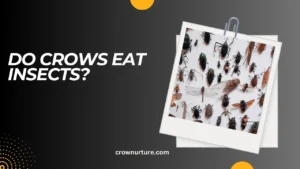Crows have long captivated us with their intelligence and adaptability. Often seen hopping from street to street or soaring high above, they seem to thrive wherever they go.
But have you ever wondered just how far these opportunistic feeders will go in their search for food? Could a small, fast-moving lizard make it onto their menu?
Yes, crows do eat lizards, although they don’t hunt them as frequently as other prey. As omnivores, crows are highly adaptable and eat a variety of food, including insects, fruits, and small animals.
Lizards, especially smaller ones, can become a part of their diet when the opportunity arises, particularly in areas where food sources are scarce. In this article, we’ll delve into how crows catch lizards, the impact of their predation, and what this means for the ecosystem.
By understanding how crows interact with lizards, we can appreciate not only their versatility but also their important role in balancing ecosystems. Whether by hunting or scavenging, crows play a vital part in nature’s intricate web.
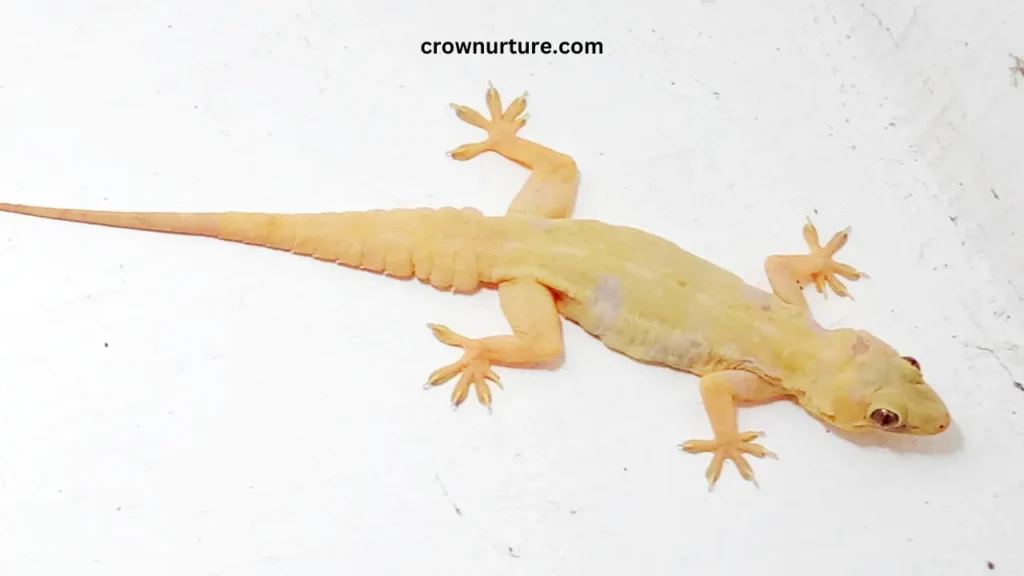
Contents
1. The Crow’s Diet: Opportunistic Omnivores
Crows are known for their diverse and opportunistic diet, consuming nearly anything they can get their beaks on. They feast on insects, fruits, seeds, grains, and even small animals.
These clever birds will eat whatever is available, adjusting their diet to suit the season and the food supply in their environment. When food is abundant, they might focus on fruits or insects; when resources are low, they might hunt for small animals, including lizards.
Crows are also known to scavenge, taking advantage of leftovers and even carrion. This adaptability makes them resourceful survivors in both urban and wild habitats.
2. Lizards as a Food Source
Lizards are part of the crow’s variable diet, particularly smaller species that are easier to catch. Crows use different hunting strategies such as aerial attacks or ground foraging to catch their prey.
They have been observed picking lizards off the ground, and in some cases, they may even use tools to help capture them. These hunting strategies highlight the intelligence of crows, enabling them to adapt to various environments.
The frequency with which crows eat lizards depends on several factors, including food availability and the abundance of lizards in the area. In regions with fewer food sources, crows are more likely to hunt lizards.
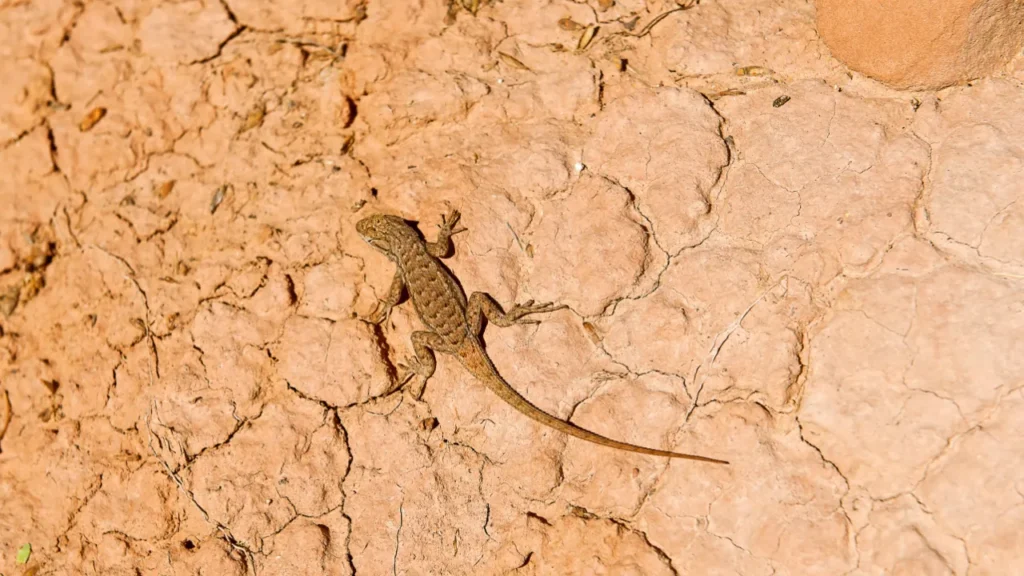
3. The Impact of Lizard Predation
While crows do prey on lizards, the overall impact on lizard populations is less clear. Crows primarily target smaller lizards, and their predation may be one of many factors that influence the population dynamics of these reptiles.
Lizards play an important role in ecosystems, particularly by helping control insect populations. As such, crow predation on lizards could disrupt this balance, especially in areas where lizards help manage pest populations.
However, crow predation is just one element of a much broader ecological web. It’s important to understand how their role fits into the larger ecosystem and how other predators also influence lizard populations.
4. Crows as Keystone Species
Crows play an important ecological role beyond just eating lizards. They are scavengers, seed dispersers, and predators of various invertebrates.
Their predation on small animals like lizards contributes to the balance of local food webs, keeping certain populations in check. This behavior ensures that no one species becomes too dominant.
By regulating the numbers of smaller prey, crows help maintain a healthy and diverse environment. Their role as a keystone species is vital for ecosystem stability.
5. The Ecological Impact of Crows on Lizard Populations
Crow predation on lizards is part of the natural balance in ecosystems. By hunting lizards, crows may help control the abundance of certain lizard species, preventing overpopulation.
However, the effect on lizard populations depends on a range of factors, such as the prey availability and the number of other predators in the area. Crow predation is only one piece of the puzzle, as other animals also target lizards.
It’s crucial to understand these dynamics when considering conservation efforts, as changes in crow or lizard populations can affect the entire ecosystem.
Conclusion
In conclusion, crows do indeed eat lizards, though they are not a primary food source for these clever birds. Crows’ ability to eat a variety of foods, including lizards, highlights their opportunistic nature and adaptability.
Understanding the role of crows in the ecosystem is key to appreciating how they balance food webs. Whether they are preying on lizards or scavenging for scraps, their actions play a significant part in the broader ecological picture.
As we consider the ecological impact of crow predation on lizards, it is clear that these birds are not just opportunistic feeders but also vital contributors to maintaining the health of their ecosystems. The more we understand their behavior, the better we can appreciate the complexity of nature’s balance.
FAQs
1. Do crows eat lizards?
Yes, crows do eat lizards, particularly smaller species that are easier to catch.
2. How do crows catch lizards?
Crows use aerial attacks, ground foraging, and sometimes even tools to catch lizards.
3. What types of lizards do crows eat?
Crows typically target smaller lizards that are easier to capture and consume.
4. Do crows hunt lizards regularly?
Lizard predation by crows is not frequent but occurs when food availability is low or lizards are abundant.
5. How does crow predation affect lizard populations?
Crow predation can affect lizard populations but is just one of many factors influencing their numbers.
6. Are crows the only predators of lizards?
No, lizards have multiple predators, including snakes, hawks, and other birds.

